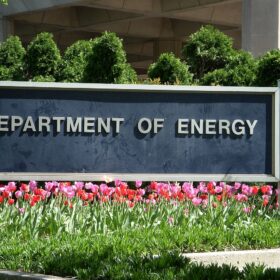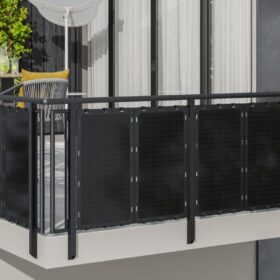Wood Mackenzie predicts 2-year decline in global solar inverter demand
Wood Mackenzie’s latest analysis expects market uncertainty in China, Europe and the U.S. to cause two consecutive years of contraction in the global solar inverter market, forecasting a fall to 577 GWac this year and 523 GWac in 2026.
Agrivoltaics as a method for critical ecosystem preservation: Introducing ecovoltaics
Recognizing the challenge of solar expansion competing with valuable agricultural land, Sandbox Solar and Colorado State University are collaborating to research how thoughtful utility-scale solar design, specifically utilizing the ecovoltaics strategy, can simultaneously produce clean energy and enhance American grassland ecosystems.
New framework quantifies solar land use with unprecedented detail
The research reached a surprising conclusion that dual-axis solar tracker systems are more land-intensive per kW than single-axis trackers or fixed-tilt systems. The study’s data-driven approach highlights key efficiency metrics and siting opportunities, including agrivoltaics and brownfield development, for sustainable solar expansion.
Sustainable home upgrade finance platform GoodLeap announces $523 million securitization
GoodLeap, which provides financing for home solar, energy storage, and more, announced a securitization sponsored by Bank of America.
Power producers and portfolio owners face the facts of life with PV repowering
REC Solar’s Andy Sofranko says planning and engineering can prevent a plant’s mid-life crisis.
Require a gas unit to add 90 MW of batteries to renew its air permit, group says
When a New Jersey gas unit’s air pollution permit is up for renewal, state law allows the public to recommend ways for the unit to reduce its emissions, such as adding batteries. That’s what one group has done.
Amazon leads funding round for U.S. silicon solid-state battery maker
Blue Current, which has a pilot production line in California, will use funding from an $80 million financing round led by Amazon to advance commercialization of its silicon solid-state battery technology for stationary storage and mobility applications in the United States.
Experts predict the top trends in U.S. residential solar for 2026
As the residential solar industry looks ahead to 2026, experts predict a bumpy ride with some fundamental changes to business operations, financing, and the long-term value of home solar.
In case you missed it: This week’s top five solar news stories
pv magazine USA spotlights news of the past week including market trends, project updates, policy changes and more.
People on the move: Anza, SEIA, and more
Job moves in solar, storage, cleantech, utilities and energy transition finance.















